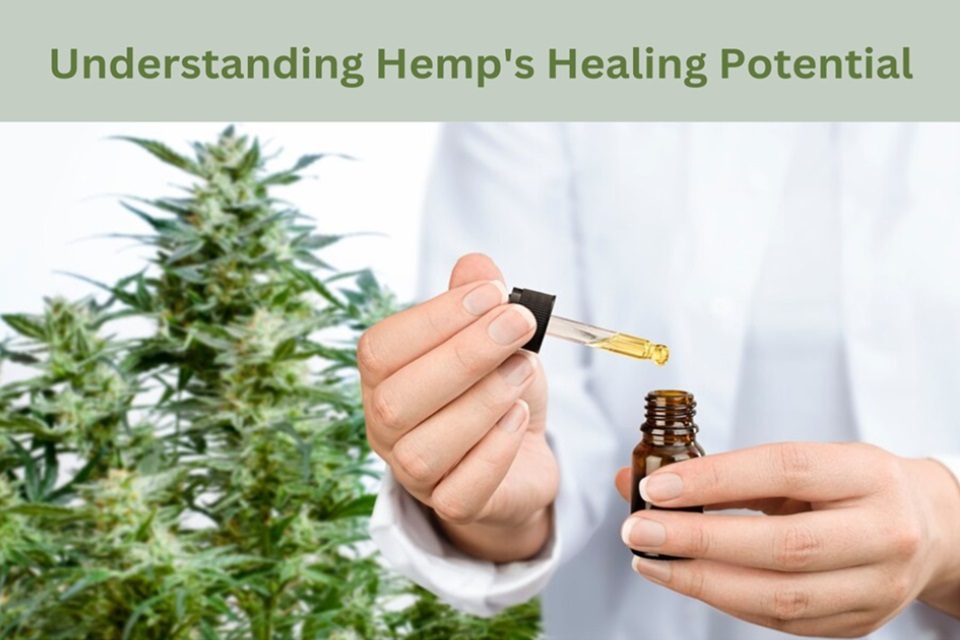Understanding Hemp’s Healing Potential: A Comprehensive Guide
Hemp, a versatile plant from the cannabis family, has been revered for its myriad of uses and potential health benefits for centuries. In recent years, there has been a resurgence of interest in hemp’s healing properties, driven by advancements in research and changes in legislation. In this comprehensive guide, we delve into the healing potential of hemp, exploring its various applications and benefits.
Understanding Hemp
Hemp, scientifically known as Cannabis sativa, is a tall, fibrous plant cultivated for industrial, medicinal, and nutritional purposes. Unlike its close relative marijuana, hemp contains minimal amounts of the psychoactive compound THC, making it non-intoxicating and legal in many regions.
Health Benefits Of Hemp:
- Nutritional Powerhouse: Hemp seeds are rich in essential nutrients, including protein, omega-3 and omega-6 fatty acids, vitamins, and minerals. Consuming hemp seeds or hemp-derived products can support overall health and well-being.
- Pain Management: Hemp-derived CBD (cannabidiol) has gained recognition for its potential analgesic properties. CBD interacts with the body’s endocannabinoid system, modulating pain signals and reducing inflammation, offering relief from chronic pain conditions.
- Stress and Anxiety Relief: CBD derived from hemp exhibits potential in diminishing stress and anxiety. Through its interaction with serotonin receptors in the brain, CBD fosters a sense of relaxation, aiding in the alleviation of symptoms associated with anxiety disorders.
- Skin Health: Hemp seed oil is widely embraced in skincare formulations for its hydrating and revitalizing qualities. Abundant in antioxidants and essential fatty acids, hemp seed oil moisturizes the skin, mitigates inflammation, and contributes to a radiant complexion.
- Neuroprotective Effects: Studies suggest that CBD may have neuroprotective properties, potentially benefiting individuals with neurological conditions such as epilepsy, Parkinson’s disease, and multiple sclerosis.
Applications Of Hemp:
- Dietary Supplements: Hemp-derived products, including CBD oil, capsules, and edibles, are widely available as dietary supplements, offering a convenient way to incorporate hemp’s health benefits into daily wellness routines.
- Topical Formulations: Hemp-infused creams, lotions, and balms are popular for skincare and pain relief purposes. These topical formulations can be applied directly to the skin to alleviate inflammation, soothe sore muscles, and promote skin health.
- Textiles and Fabrics: Hemp fibers are renowned for their strength, durability, and eco-friendly properties. Hemp textiles are increasingly used in clothing, accessories, and home furnishings as a sustainable alternative to conventional materials.
- Industrial Applications: Hemp fibers, seeds, and stalks are utilized in various industrial applications, including papermaking, construction materials, biofuels, and biodegradable plastics, contributing to a more sustainable future.
Conclusion
Hemp’s healing potential extends far beyond its industrial and nutritional uses. With its diverse applications and health benefits, hemp emerges as a promising natural remedy for various ailments and a sustainable solution for multiple industries. As research continues to unveil its therapeutic properties, hemp stands poised to revolutionize healthcare and contribute to a healthier, greener planet.
FAQs
Is hemp the same as marijuana?
While both hemp and marijuana belong to the cannabis family, they are distinct varieties with different chemical compositions. Hemp contains minimal THC (tetrahydrocannabinol), the psychoactive compound responsible for marijuana’s intoxicating effects, making it non-intoxicating and legal in many regions.
Can hemp products get you high?
No, hemp-derived products contain negligible levels of THC, the psychoactive compound in marijuana. As a result, consuming hemp products, including CBD derived from hemp, does not produce intoxicating effects or a “high.”
What are the potential side effects of using hemp-derived products?
While hemp-derived products are generally well-tolerated, some individuals may experience mild side effects such as dry mouth, drowsiness, or changes in appetite. It’s essential to start with low doses and monitor for any adverse reactions, especially when using CBD products.
How can I incorporate hemp into my daily routine?
Hemp-derived products come in various forms, including oils, capsules, edibles, skincare products, and textiles. Depending on your preferences and wellness goals, you can incorporate hemp into your daily routine by using CBD oil or capsules as dietary supplements, applying hemp-infused skincare products, or incorporating hemp textiles into your wardrobe or home furnishings.





